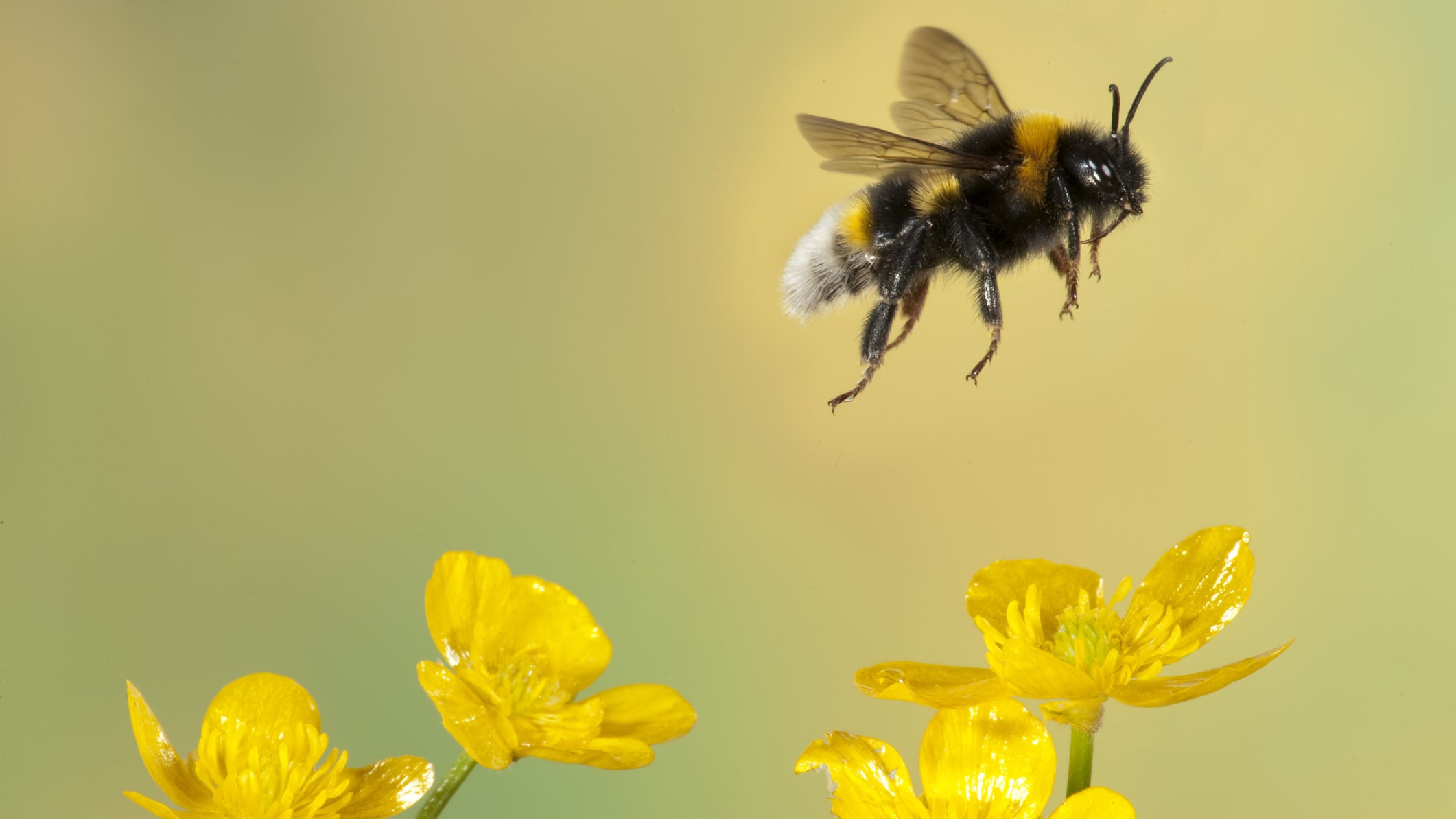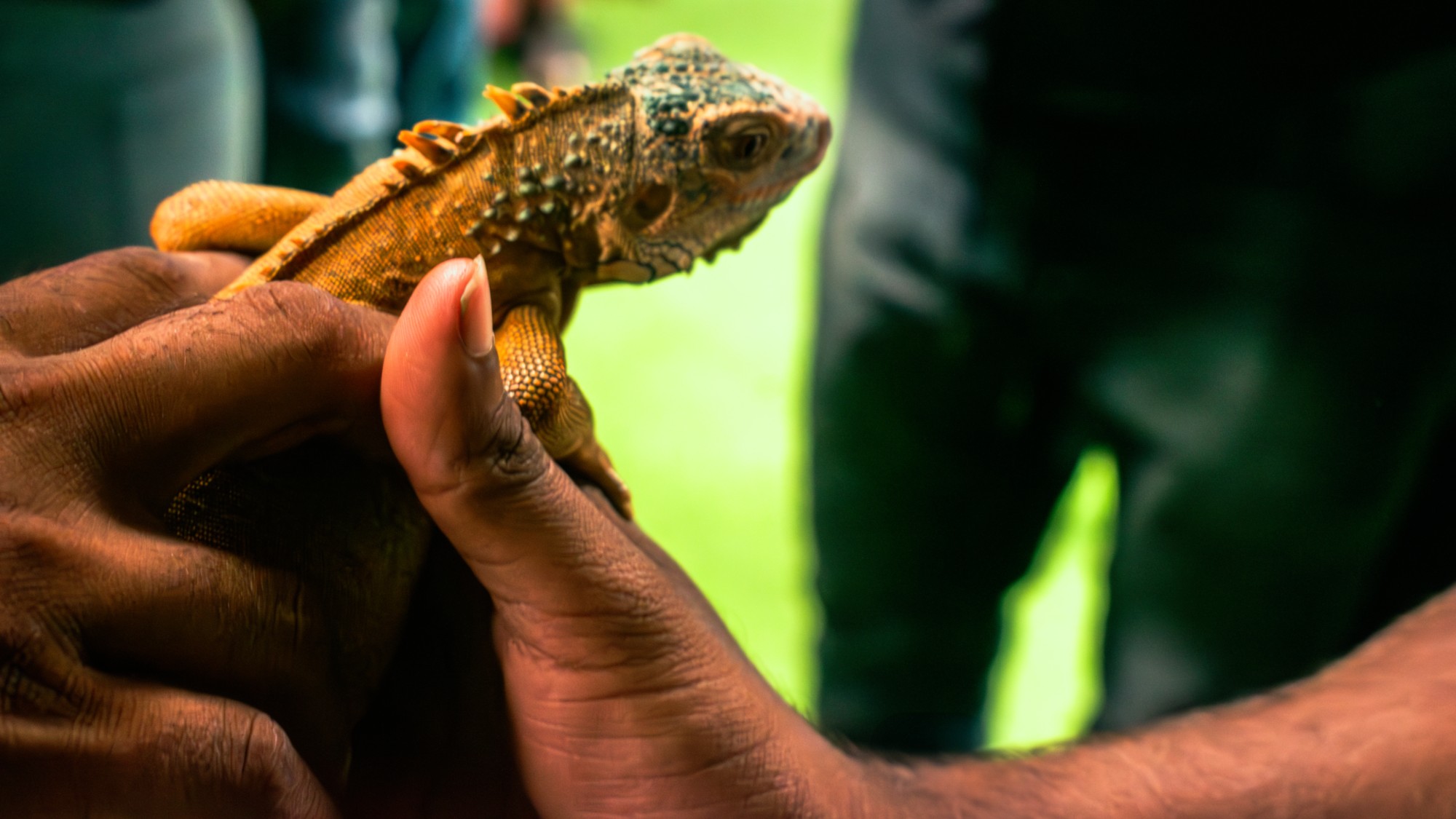Bumblebees can solve puzzles by following other bees, study finds


A free daily email with the biggest news stories of the day – and the best features from TheWeek.com
You are now subscribed
Your newsletter sign-up was successful
A new study has found that bumblebees can solve puzzles by watching their peers. "These creatures are really quite incredible. They're really, really good at learning despite having these tiny, tiny brains," said Alice Bridges, a behavioral ecologist at Anglia Ruskin University.
In order to test this, researchers set up a box puzzle that could be solved via two methods and trained "demonstrator" bees to solve the puzzle in different ways, BBC reports. Designated "observer" bees then watched the "demonstrator" bees solve the puzzle. The results showed that, 98 percent of the time, the "observer" bee solved the puzzle using the same method as the bee it watched, even if the observer had discovered the second method. Bees that followed a demonstrator were also able to solve more puzzles than those that didn't.
Scientists have also posited that bees may have a culture like humans, with learned behaviors passed around in the bee colony, NPR writes. "In our experiments, we saw the spread and maintenance of a behavioral 'trend' in groups of bumblebees — similar to what has been seen in primates and birds," said Bridges. If that knowledge among animals lasts, "we might be prepared to call it a tradition," explained Andy Whiten, a cognitive ethologist at the University of St. Andrews. "And culture is made up of multiple traditions."
The Week
Escape your echo chamber. Get the facts behind the news, plus analysis from multiple perspectives.

Sign up for The Week's Free Newsletters
From our morning news briefing to a weekly Good News Newsletter, get the best of The Week delivered directly to your inbox.
From our morning news briefing to a weekly Good News Newsletter, get the best of The Week delivered directly to your inbox.
"All we have discovered about animal culture means that human culture, once thought unique," remarked Whiten, "did not emerge 'out of the blue' but has obviously built on deep evolutionary foundations."
A free daily email with the biggest news stories of the day – and the best features from TheWeek.com
Devika Rao has worked as a staff writer at The Week since 2022, covering science, the environment, climate and business. She previously worked as a policy associate for a nonprofit organization advocating for environmental action from a business perspective.
-
 The ‘ravenous’ demand for Cornish minerals
The ‘ravenous’ demand for Cornish mineralsUnder the Radar Growing need for critical minerals to power tech has intensified ‘appetite’ for lithium, which could be a ‘huge boon’ for local economy
-
 Why are election experts taking Trump’s midterm threats seriously?
Why are election experts taking Trump’s midterm threats seriously?IN THE SPOTLIGHT As the president muses about polling place deployments and a centralized electoral system aimed at one-party control, lawmakers are taking this administration at its word
-
 ‘Restaurateurs have become millionaires’
‘Restaurateurs have become millionaires’Instant Opinion Opinion, comment and editorials of the day
-
 Russia’s ‘cyborg’ spy pigeons
Russia’s ‘cyborg’ spy pigeonsUnder the Radar Moscow neurotech company with Kremlin-linked funding claims to implant neural chips in birds’ brains to control their flight, and create ‘bio-drones’
-
 How roadkill is a surprising boon to scientific research
How roadkill is a surprising boon to scientific researchUnder the radar We can learn from animals without trapping and capturing them
-
 The ocean is getting more acidic — and harming sharks’ teeth
The ocean is getting more acidic — and harming sharks’ teethUnder the Radar ‘There is a corrosion effect on sharks’ teeth,’ the study’s author said
-
 Cows can use tools, scientists report
Cows can use tools, scientists reportSpeed Read The discovery builds on Jane Goodall’s research from the 1960s
-
 Blue Origin launches Mars probes in NASA debut
Blue Origin launches Mars probes in NASA debutSpeed Read The New Glenn rocket is carrying small twin spacecraft toward Mars as part of NASA’s Escapade mission
-
 Dinosaurs were thriving before asteroid, study finds
Dinosaurs were thriving before asteroid, study findsSpeed Read The dinosaurs would not have gone extinct if not for the asteroid
-
 Parthenogenesis: the miracle of 'virgin births' in the animal kingdom
Parthenogenesis: the miracle of 'virgin births' in the animal kingdomThe Explainer Asexual reproduction, in which females reproduce without males by cloning themselves, has been documented in multiple species
-
 Canyons under the Antarctic have deep impacts
Canyons under the Antarctic have deep impactsUnder the radar Submarine canyons could be affecting the climate more than previously thought
